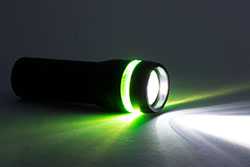Carbon Monoxide (CO) Poisoning Prevention

When power outages occur after severe weather (such as severe storms, hurricanes or tornadoes), using alternative sources of power can cause carbon monoxide (CO) to build up in a home and poison the people and animals inside.
Every year, at least 430 people die in the U. S. from accidental CO poisoning. Approximately 50,000 people in the U.S. visit the emergency department each year due to accidental CO poisoning. There are steps you can take to help protect yourself and your household from CO poisoning. Change the batteries in your CO detector every six months. If you don’t have a battery-powered or battery back-up CO detector, buy one soon.
CO is found in fumes produced by portable generators, stoves, lanterns, and gas ranges, or by burning charcoal and wood. CO from these sources can build up in enclosed or partially enclosed spaces. People and animals in these spaces can be poisoned and can die from breathing CO.
CO poisoning is entirely preventable. Protect yourself and your family by acting wisely in case of a power outage and learning the symptoms of CO poisoning.

CO poisoning is entirely preventable. Protect yourself and your family by acting wisely in case of a power outage and learning the symptoms of CO poisoning.
How to Recognize CO Poisoning
The most common symptoms of CO poisoning are headache, dizziness, weakness, nausea, vomiting, chest pain, and confusion. People who are sleeping or who have been drinking alcohol can die from CO poisoning before ever having symptoms.
CO Poisoning Prevention Tips
- Never leave the motor running in a vehicle parked in an enclosed or partially enclosed space, such as a garage.
- Never run a generator, pressure washer, or any gasoline-powered engine inside a basement, garage, or other enclosed structure, even if the doors or windows are open, unless the equipment is professionally installed and vented. Keep vents and flues free of debris, especially if winds are high. Flying debris can block ventilation lines.
- Never run a motor vehicle, generator, pressure washer, or any gasoline-powered engine less than 20 feet from an open window, door, or vent where exhaust can vent into an enclosed area.
- When using a generator, use a battery-powered or battery backup CO detector in your home.
- Never use a charcoal grill, hibachi, lantern, or portable camping stove inside a home, tent, or camper.
- If conditions are too hot, seek shelter with friends or at a community shelter.
- If CO poisoning is suspected, consult a health care professional right away.
CO poisoning is entirely preventable. You can protect yourself and your family by acting wisely in case of a power outage and learning the symptoms of CO poisoning.
For more information, please visit the Carbon Monoxide Poisoning website.
- Page last reviewed: July 17, 2017
- Page last updated: July 17, 2017
- Content source:
- National Center for Environmental Health, Division of Environmental Hazards and Health Effects, Air Pollution & Respiratory Health Branch
- Page maintained by: Office of the Associate Director for Communication, Digital Media Branch, Division of Public Affairs




 ShareCompartir
ShareCompartir